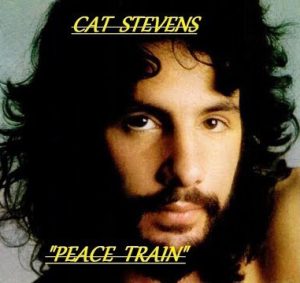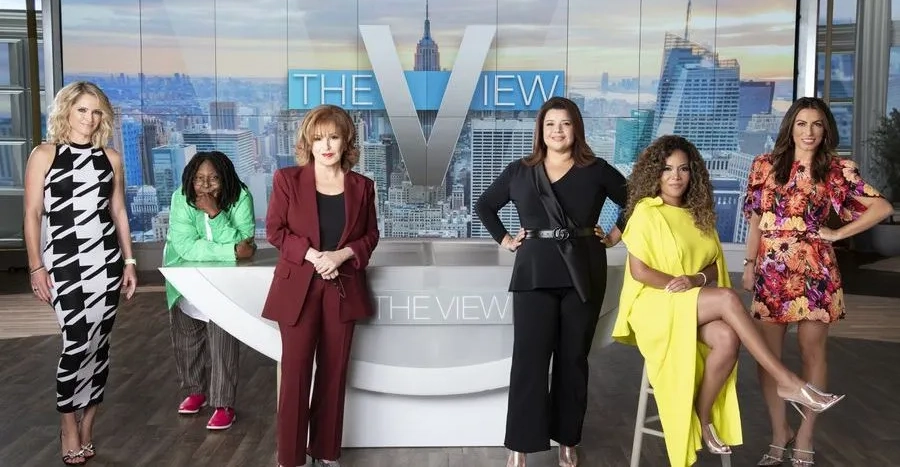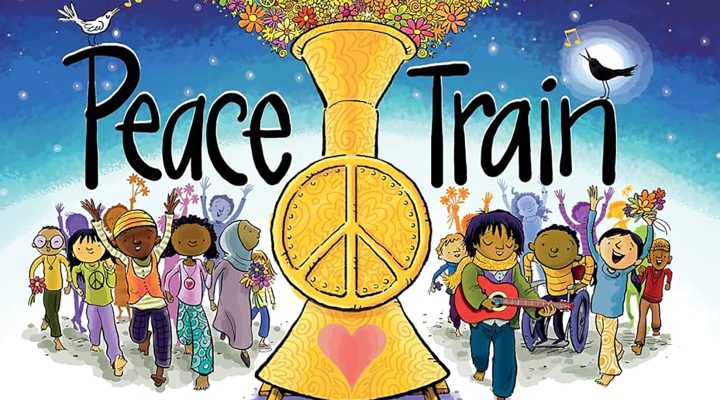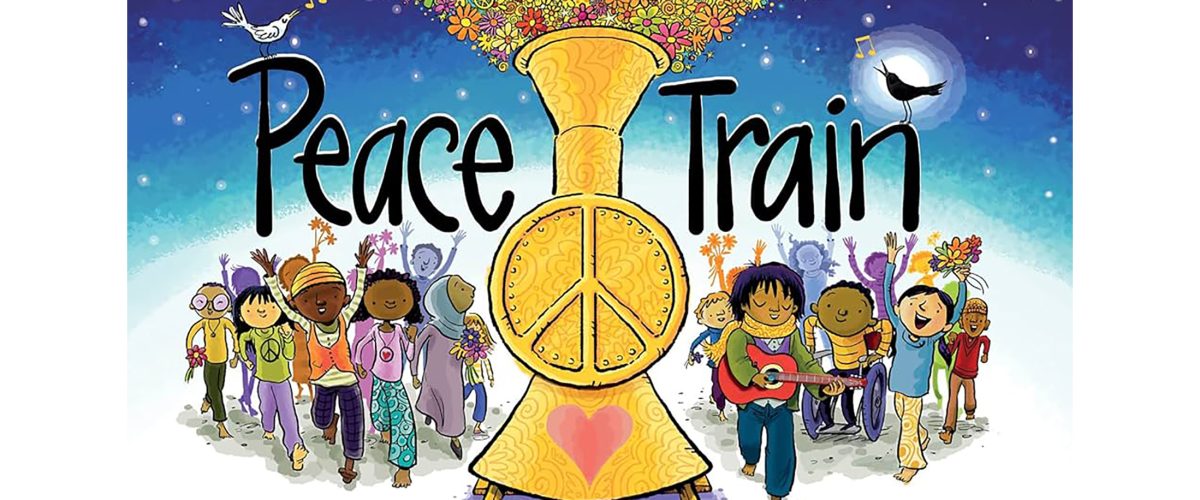Negative reactions to Donald Trump’s reelection to the presidency — the ones I have primarily heard or read — have been swift and serious. There have been many analyses of where Democrats went wrong in an election that offered such a stark choice between two candidates, their styles of campaigning and their vision for our country.
I do not have the expertise to explain why Harris lost and Trump won or, even more incredulously, why he won both the Electoral College and the popular vote. But I do have an opinion about how we all should respond to one another now, across political boundary lines, in light of this election.
Peace train
In 1971, I had returned from two years teaching English as a Second Language in Indonesia and was completing a master’s degree in Louisville, Ky. One of my favorite musical artists had become Cat Stevens, a British singer-songwriter who was very popular in America. He sang folk, rock, pop and — later, after he changed religions and became known as Yusuf Islam — Islamic music.
 Yusuf, or Cat Stevens, is still making music today. He has sold more than 100 million albums and had more than 2 billion streams of his recordings. Over the years, he has been granted two honorary doctorates and received numerous awards for his humanitarian and peacemaking efforts.
Yusuf, or Cat Stevens, is still making music today. He has sold more than 100 million albums and had more than 2 billion streams of his recordings. Over the years, he has been granted two honorary doctorates and received numerous awards for his humanitarian and peacemaking efforts.
One of his most famous songs is “Peace Train.” Written during a time of national conflict, protest and division over the Vietnam War, the song offered hope and promise to many young Americans. Its implications are as powerful now, in 2024, as in 1971, and I believe the words and the ideas behind them still can be meaningful to Americans of all ages. Here are excerpts from the lyrics:
Now I’ve been happy lately, thinking about the good things to come.
And I believe it could be, something good has begun.
Oh, I’ve been smiling lately, dreaming about the world as one.
And I believe it could be, some day it’s going to come.
’Cause out on the edge of darkness, there rides a peace train.
Oh, peace train take this country, come take me home again.
Now I’ve been crying lately, thinking about the world as it is.
Why must we go on hating, why can’t we live in bliss?
Oh, peace train soundin’ louder, glide on the peace train.
Ooh-ah, ee-ah, ooh-ah, come on the peace train, peace train.
Yes, peace train holy roller, everyone jump on the peace train.
Cat Stevens was widely viewed as being against the Vietnam War, the national tragedy that was fracturing the country and creating division even within families. The “peace train” Stevens hoped was coming obviously may refer to the peaceful conclusion of that war. But I choose to interpret the lyrics, or at least apply them, to the peace that hopefully might come between “warring” factions of our own citizenry and electorate.
Stevens performed the song in many significant venues, including the 2006 Nobel Peace Prize Concert in 2006 in Sweden. In 2021, he re-recorded the song with more than 25 musicians from 12 countries. About the song which became something of a “hippie anthem,” the website Songfacts explains:
In 2003, Yusuf Islam re-recorded this for a compilation album called Hope … a benefit for children in Iraq. It was his first English language recording since 1978. The U.S. and Britain had invaded Iraq, which was perceived by many to be an attack on Muslims. Stevens explained: “As a member of humanity and as a Muslim, this is my contribution to the call for a peaceful solution to the dangerous path some world leaders today seem to be taking.”
In 2021, a New York Times bestselling children’s book based on the song and featuring illustrations by acclaimed artist Peter H. Reynolds was published by HarperCollins. The book opens with an image of a young, barefoot guitar player, sitting on a hillside with a cat peacefully curled at his feet and a black bird overhead, singing with him. In the distance is a yellow train approaching. As it comes closer in subsequent illustrations, one can see on its windows peace symbols representing the Flower Child idealism of the era in which the song was written. As the train arrives, many nationalities of people — with distinct forms of dress unique to their cultures, representing different physical abilities — climb aboard.
Why we need the Peace Train more than ever
We have just come through perhaps the most consequential presidential election since that of George Washington in 1788, Abraham Lincoln in 1860 or Franklin D. Roosevelt in 1932. Not since the Civil War has our country been as divided politically as it is today.
“Not since the Civil War has our country been as divided politically as it is today.”
Simulating one of the darkest periods of America’s history, people have been verbally lynched by their enemies or by those who feel they have no place in our society. Many Americans still feel the shock waves of the only attack on our Capitol since British troops set it on fire in the War of 1812. For the first time in our 248-year history, we have had to consider the possibility that our way of life and style of governance may be brought to an end.
This is a time of disbelief, discouragement, frustration and fear for millions of us and our fellow Americans. Even in the hours after the official announcement of Donald Trump’s victory, there were articles concerning him and his presidency: who Trump has vowed to prosecute, how his election will affect American democracy and what happens to his ongoing legal cases and trials.
Social media outlets are filled with personal responses (“Hallelujah,” “God is merciful,” or “I am proud to be an American again”) and alternative reactions (“What the hell,” “I don’t blame Kamala, I blame America,” or “Give us Barrabas!”).

Conversations on ABC’s The View are current and topical. Prominent guests from both sides of the political aisle are welcomed and given the opportunity to share ideas and answer questions. The panel is designed to be diverse and representative.
Two of the women are African American, one is Latino, and three are white. The women range in age from 35 to 82. Two have been Republicans, while the other four are Democrats. One is an acclaimed actor with an EGOT (Emmy, Grammy, Oscar and Tony), another is a comedian and television host, a third was the White House director of strategic communication for the first Trump presidency, the fourth is a former federal attorney, the fifth is a media journalist, and the sixth was the Hispanic co-chair of John McCain’s presidential run. The six women at the table all supported Harris this election season, and they have not disguised their disapproval — even disgust — of Trump.
Yet, on the day after the election, when one might have expected these women to be partisan and angry, they actually inspired and schooled me. Here are examples of their words:
Sara Haines: “When the person you voted for does not win, you do not say, ‘This system must be broken, or that it was rigged.’ You say, “It is what it is,” and you show up anyway. And I want to commend all those people that voted, ’cause you sometimes hear people say, ‘Well, it didn’t matter.’ No, it did matter. That was still your currency, that was still your power.”
Joy Behar: “My takeaway is that the system works. We live in a democracy. People spoke. This is what people wanted. I vehemently disagree with the decision Americans made, but I feel very, very hopeful that we have a democratic system in this country. We should value it. We should love it. (But) we should protest, if the situation arises that we need to protest, which I’m sure it will.”
Allysa Farah Griffin: “Is it the outcome I wanted? No, but we live in a democracy. I have my vote. Millions of people cast their votes. And what’s important to me is this: Tens of millions of Americans — our friends, our neighbors, our family members — voted for Donald Trump. We disagree with them. … But they are good, decent people who are patriots and love this country. And I can’t speak to what drove them to the decision of being with him, but I think it is a moment for us to listen to each other, to hear each other … for this is a country (where) there is truly more that unites us than divides us.”
These comments cause me to consider that the women — professional entertainers who talk for a living about controversial subjects and have a reputation for being edgy, bright and informed — have decided to get on the Peace Train. They are not so cynical they can’t imagine our world as one. They are still capable of smiling about the good things that could come.
They, like many of us, have been crying, thinking about the world as it is. They too have been questioning why we must go on hating and why we can’t live in bliss. So their cry is, “Peace Train take this country, take me home again.”
When Yusuf re-recorded “Peace Train” in 2003, he said that “as a member of humanity and a Muslim” the song was his “contribution to the call for a peaceful solution to the dangerous path some world leaders today seem to be taking.” It was 21 years ago that he produced the album Hope, but it seems now we, as individuals and a nation, must cling to hope. How we respond is crucial.
I do not want to be forever stained by the toxic hatred encouraged by the president-elect and his surrogates during this election. I refuse to drop Facebook friends or stop relating to people in my church or community because I know they voted differently than I did.
So, whether we believe the sun has come out, or we feel that we are out there in the darkness, oh, how I wish all of us — Yellow Dog Democrats, MAGA Republicans and everyone in between — could somehow be as positive as these television personalities.
We all need to get on the Peace Train. Because if we don’t, we may lose not only the political party we support, but the country we love.

Robert Sellers
Rob Sellers is professor of theology and missions emeritus at Hardin-Simmons University’s Logsdon Seminary in Abilene, Texas. He is a past chair of the board of the Parliament of the World’s Religions in Chicago. He and his wife, Janie, served a quarter century as missionary teachers in Indonesia. They have two children and five grandchildren.
Related articles:
As White House chief of staff, Andy Card sought to model optimism
The slippery slope of unchallenged lies | Opinion by Mark Wingfield
Author calls Christians to the ‘courageous middle’


